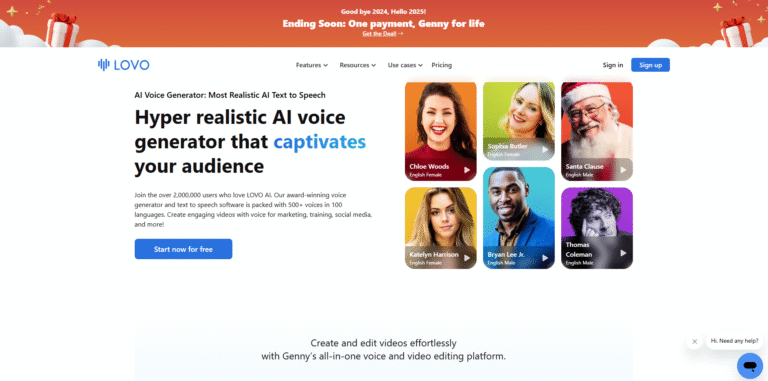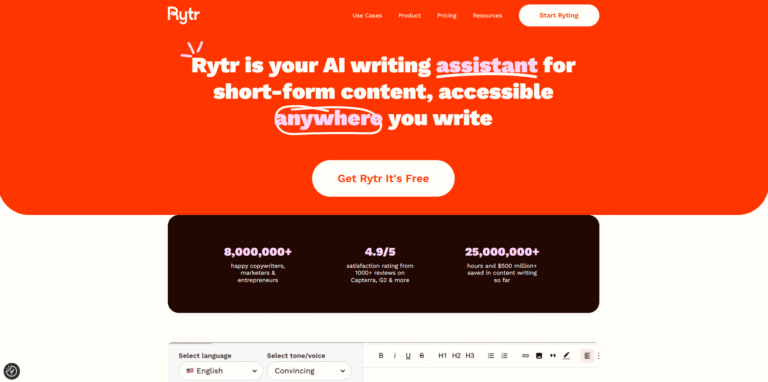In recent years, AI voice cloning has emerged as a powerful yet controversial tool, transforming how we create audio content. With just a few minutes of recorded speech, AI can now replicate human voices with stunning realism. But as this technology goes mainstream, questions around the ethics of AI voice cloning have become impossible to ignore. In 2025, it’s no longer just about what we can do—but what we should do.
What Is AI Voice Cloning and Why the Ethics Matter
Voice cloning uses artificial intelligence, particularly deep learning models, to mimic a real person’s voice. By analyzing speech patterns, tone, inflection, and rhythm, AI can generate synthetic speech that sounds like it came directly from a specific individual. This technology powers everything from virtual assistants and dubbed videos to branded voiceovers and audiobooks.
But the ability to replicate someone’s voice isn’t just a technical achievement—it’s a moral crossroads. The ethics of AI voice cloning involve critical concerns around consent, identity, misuse, and the long-term implications for society.
Consent and Ownership in AI Voice Cloning
One of the most pressing questions in the ethics of AI voice cloning is voice ownership. Just because someone’s voice is publicly available—on YouTube, in podcasts, or recorded interviews—doesn’t mean it’s ethically fair to clone it. Voices are part of personal identity, and cloning one without consent can be seen as a digital violation.
In 2025, many AI voice tools include terms that require users to have permission to upload or replicate a voice. However, enforcement is inconsistent, and some platforms don’t actively check if that consent exists. This gray area has already led to controversial cases, including cloned voices of celebrities, political figures, and deceased individuals being used without authorization.
Misinformation and Deepfake Risks in Voice Cloning
When we talk about the ethics of AI voice cloning, the conversation inevitably turns to misinformation. With a cloned voice, someone could easily fabricate statements that were never made—impersonating public figures, faking confessions, or manipulating news.
This isn’t just theoretical. In early 2024, a politician’s voice was faked in a viral video that falsely claimed they had made inflammatory remarks. Though later debunked, the damage was done. In an age where audio is still treated as strong evidence, voice cloning tools must be held to a higher ethical standard.
Some platforms have begun watermarking cloned voices or limiting usage to private environments. Others are calling for global regulations to combat the misuse of synthetic voices. Still, the balance between innovation and safety remains fragile.
Posthumous Voice Cloning and Ethical Considerations
Another delicate aspect of the ethics of AI voice cloning is the use of voices from people who have passed away. Can a deceased actor’s voice be used in a new film? Should a late loved one’s voice be recreated for comfort or storytelling? In both cases, the emotional impact can be significant—both positive and negative.
While some families give consent, others argue that using a dead person’s voice for profit or entertainment is exploitative. The legal landscape is murky. Laws surrounding digital likeness and voice rights vary by country, and many do not yet cover posthumous voice use explicitly. In 2025, this ethical blind spot is becoming increasingly important as the demand for AI-generated voices grows.
Authenticity and the Risks of Artificial Voice Deception
One subtle but crucial issue in the ethics of AI voice cloning is the erosion of authenticity. When consumers hear a voice, they assume it belongs to a real person. If it’s synthetic, that assumption creates a false connection—particularly in advertising, education, or journalism.
Imagine an ad campaign using what sounds like a passionate activist delivering a heartfelt message—only to find out it’s a completely artificial voice. Even if the message is genuine, the emotional impact feels manipulated. Transparency is key. Content that uses cloned voices should clearly disclose it to maintain trust and avoid misleading audiences.
Accessibility and Empowerment: The Positive Side of AI Voice Cloning
Not all ethical conversations about AI voice cloning are negative. In fact, many uses of this technology are deeply empowering. For individuals with speech impairments due to illness or injury, cloned voices offer a chance to communicate in a way that reflects their true selves. For non-native speakers, it allows the creation of content in multiple languages while maintaining a consistent tone.
The ethics of AI voice cloning must also recognize these positive applications. When used with consent and care, voice cloning can enhance accessibility, personalization, and inclusivity in ways traditional audio production cannot.
Industry Responsibility and the Future of AI Voice Ethics
As AI voice cloning becomes mainstream, the burden of responsibility falls not only on users but also on developers, platforms, and regulators. Companies offering voice cloning services should:
- Require and verify explicit consent for voice uploads
- Include security features like watermarking and usage tracking
- Provide education about ethical usage and potential risks
- Offer tools to report and remove misused content
These practices aren’t just good PR—they’re foundational to a sustainable and trustworthy AI ecosystem.
Meanwhile, governments must step up with clearer legislation. The ethics of AI voice cloning can’t be left solely to tech companies or individual users. Much like data privacy laws, voice rights must be protected under enforceable digital identity frameworks.
The Ethics of AI Voice Cloning in 2025: Where to Draw the Line
As AI continues to evolve, we must ask tough questions: Where do we draw the line between innovation and manipulation? How do we protect individuals while allowing for creativity and progress? And who gets to decide what is ethical?
The ethics of AI voice cloning in 2025 is not just a theoretical discussion—it’s a necessary framework for how we navigate identity, media, and truth in the digital age. By emphasizing consent, transparency, and regulation, we can shape a future where synthetic voices serve us without deceiving or exploiting us.
Conclusion
AI voice cloning is one of the most exciting and controversial technologies of our time. Its potential is immense—but so are its risks. The ethics of AI voice cloning must be central to how we develop, deploy, and regulate this powerful tool. Whether you’re a creator, a company, or a consumer, understanding where we draw the line in 2025 isn’t just important—it’s essential.
If you’re interested in discovering AI Voice Generation tools, click here or the image below.





[…] Of course, synthetic voices come with their share of ethical questions. […]
[…] Major AI and audio platforms are beginning to build ethical guidelines […]